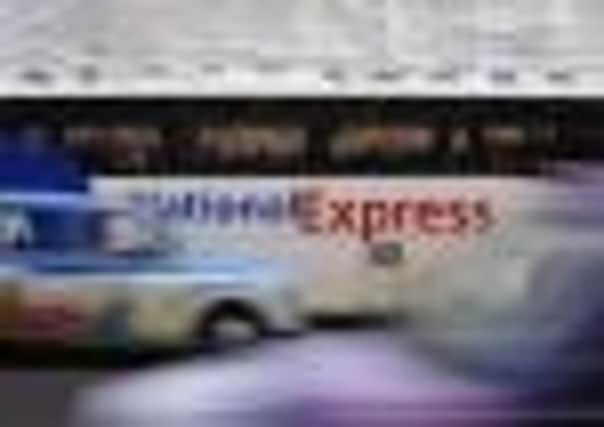National Express looks to rebuild presence in rail


The bus, coach and rail operator highlighted its improved prospects by restoring the dividend it axed during a disastrous 2009, when it was forced to return its loss-making East Coast rail franchise to the Government.
Many analysts feared that the abandonment of that contract after it failed to meet revenue targets could have left National Express in the rail wilderness.
Advertisement
Hide AdAdvertisement
Hide AdBut analysts believe a new Government has given it an opportunity for rehabilitation.
“Our goal in rail has been to move beyond the difficulties of 2009 and ensure that National Express is positioned to participate in profitable future rail operations where risks are both appropriate and manageable,” National Express said yesterday after posting a 38 per cent rise in 2010 profit.
In 2010, the coalition Government gave the firm extensions to its two remaining franchises, East Anglia, to February 2012, and the c2c London to Essex commuter line, until May 2013.
Chief executive Dean Finch said: “The operational performance of c2c is industry leading, and that certainly has helped improve relationships considerably with the Department for Transport (DfT).”
Advertisement
Hide AdAdvertisement
Hide AdHe said the firm would seek to pre-qualify for the new Greater Anglia franchise but would not bid for the West Coast.
“Any ability to stay in rail would be an unexpected upside to the core investment case,” said RBS analyst Joe Spooner.
Shares in National Express have risen by more than 20 per cent over the last year.
National Express, which also operates buses and coaches in the UK, Spain and North America, said it would pay a dividend of 6p a share, its first since it was suspended in 2009, after making an underlying profit before tax of £160.5m in 2010.
That compares with analysts’ average forecast of £158.4m.
Advertisement
Hide AdAdvertisement
Hide AdOverall group revenue fell 22 per cent to £2.13bn, but the firm’s underlying profit margin rose to 9.6 per cent from 5.9 per cent.
The company said the turnaround was running ahead of plan. It pointed out the result was 15 per cent higher than the market’s expectations at the start of the year.
Chairman John Devaney said much of the credit should go to Mr Finch, who he said had brought “clarity and operational focus” throughout the group.
“Following a turbulent 2009, we are rebuilding a high quality business, focused on its core operations and established on a sound financial footing,” he added.
Advertisement
Hide AdAdvertisement
Hide AdThe company operates more than 1,600 buses and employs 5,800 people in the West Midlands and Dundee, while its coach operation serves more than 1,000 destinations and employs 1,600 people.
It also runs transport services in North America and Spain.
Mr Finch joined the company from London Underground infrastructure firm Tube Lines.
The group, which cut net debt by seven per cent to £610.4m, said it was seeing good margin progression and revenue growth in 2011 so far and was confident on prospects for the balance of the year.
It is fully hedged for fuel usage through 2011 and 75 per cent hedged for 2012.
Advertisement
Hide AdAdvertisement
Hide AdAfter a record performance in 2009, the company’s coach division saw a year of consolidation as revenues rose 3 per cent to £250.3m and profits declined to £32m from £34.3m a year earlier.
The decline reflected an increase in marketing, as well as investment in new facilities such as the new Birmingham coach station and tactical campaigns to defend the business against “aggressive” competition.